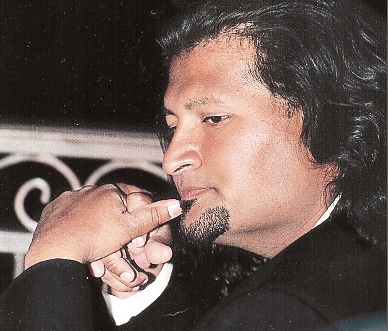BY DARSHAK JEYANANDARAJAN
Many Hindus were outraged when they read Kenneth L. Woodward’s article entitled Countless Souls Cry Out to God, published in Newsweek on January 10, 2005. Referring to the tsunami of December 26, 2004, as “a cataclysm of Biblical proportions, ” Woodward bemoans the plight of “poor fishing communities whose inhabitants–mostly Hindus–are untutored in refined theological speculation on life and death ” and believe that “life is controlled by the play of capricious deities.”
To fathom the mind set of these common Hindu folk, Woodward consults not a Hindu but “a specialist in South Asian Hinduism ” from Bard College in New York named Richard Davis. Davis says, “Hindus use the deities to think about and explain happenings like the tsunami as destructive acts of god. Relating to the local deity and cooling her anger through propitiation is more important than thinking about personal or collective guilt for what has happened.”
When Aseem R. Shukla of the Hindu American Foundation in Ponte Vedra Beach, Florida, wrote a letter to the editor of Newsweek respectfully attempting to clarify some of Hinduism’s more fundamental concepts like karma and reincarnation–which were relevant to the article but not mentioned by Woodward or Davis–Newsweek published a portion of his letter with a rejoiner which stated, “Newsweek recognizes that in all religious traditions, including Hinduism, there are differences between popular piety and intellectually sophisticated spiritual reflections. Our article specifically stated that we were describing the outlook and reactions of the inhabitants of poor fishing communities, mostly Hindus….’ ” Although the same article also mentioned the effects of the tsunami on Buddhists and Muslims, it consulted theologians and did not try to convey the views of their “untutored ” followers.
Shukla was not the only Hindu offended enough to complain about the work of Woodward and Davis. Darshak Jeyanandarajan, a Sri Lankan American Hindu, born and raised in America, shares his thoughts on the Newsweek article:
First, I wish to thank Newsweek for its coverage of the disaster. It brings some measure of relief to know that the world is being informed. Yet, I was surprised, disappointed and offended to see the characterizations of Hindus in Kenneth Woodward’s article. It is clear that Mr. Woodward has no comprehension of the philosophy, depth and power of Hinduism. There are volumes of Hindu philosophical works dedicated to the issues of life and death, which include thorough discussions of such basic concepts as karma, reincarnation and samskaras (mental impressions that manifest particular tendencies in an individual), to name but a few.
I would also like to inquire about the quotation in the article from Richard Davis. Woodward and Davis both seem to be characterizing the affected Hindus as unsophisticated thinkers that just blindly go and pray to a woman when they should be thinking of why it is their personal and collective fault that this happened!
In response, let me first say that Hindus have no problem acknowledging the feminine principle of the universe. There are many archetypes of the feminine, and the teachings surrounding it are tailored to every level of aspirant, from the child to the college professor. Unlike in the West, there is no problem with thinking of God as a woman. God is man, God is woman, God is man and woman, and God is beyond both man and woman. Hence, there is consistency in thought regarding the omnipresence of God in Hindu philosophy.
Except for Buddhism, there is no religion on Earth that accepts as much responsibility for the content and context of life as Hinduism. It is not a matter of blame, guilt, the dominance of a wrathful God or even the fact that we might be deserving such a horrible tragedy. Hinduism acknowledges a larger perspective from which all situations may be understood in the light of the soul’s growth toward a merging back into the Ultimate Source. From this point of view, adversity may be approached as the ultimate teacher, rather than as a calamity in which foolish people are “controlled by the play of capricious deities.” Humanity should be humbled by the people of any faith who lose everything, yet in their loss–even if only for a few moments in a broader scale of time–bring the world together in compassion. What other event in recent memory has drawn people of all races and religions together to help one another to such an extent as this?
It is unfortunate that we still live in a time that requires a catastrophe to awaken empathy and kindness. Countless souls are crying to God, but perhaps this is God crying to us. Newsweek is in a unique position to inform and bring people together, but misinformed articles like Mr. Woodward’s serve only to exacerbate misunderstanding and create tensions through erroneous characterization. A printed apology by Newsweek and Mr. Woodward to the Hindus of the world would be appropriate. The people in South Asia have suffered enough without having to see one of their great philosophies reduced to superstitious insanity in the international press.
